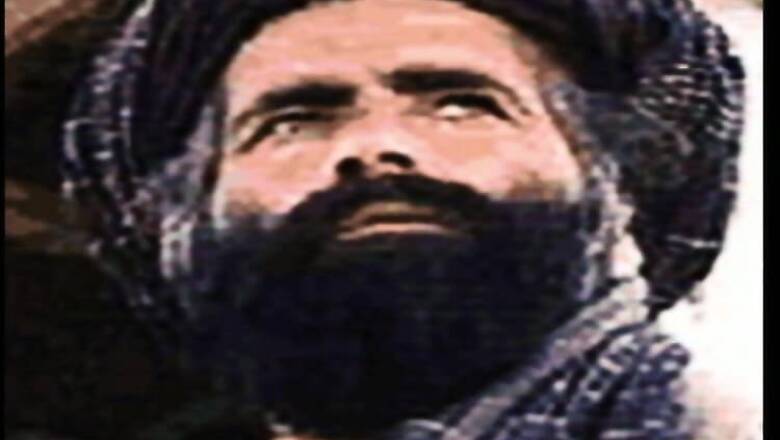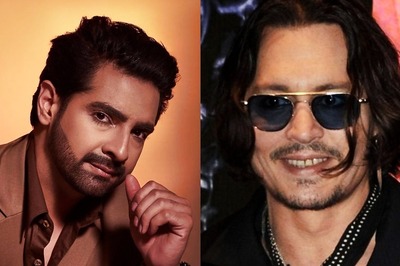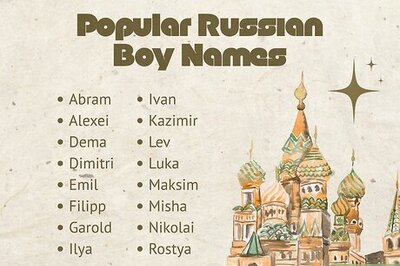
views
New York: Mullah Akhtar Mansoor, Taliban's newly-anointed chief, may have deceived fellow insurgents for the past two years by claiming to pass orders and messages from Mullah Muhammad Omar even though he would have been aware
that his boss had died in 2013, a media report said.
"Yet even by Mullah Omar's standards, his elusiveness in his final years was remarkable. Only a handful of high-ranking Taliban had any access to their leader, and by the middle of 2013 that number had been winnowed to one: Mullah Akhtar
Mansour, effectively the No 2 in the insurgency," a report in the New York Times said.
It said that Afghan and American intelligence indicated that Mullah Omar was probably dead by 2013.
"That means that Mullah Mansour may have spent most of the past two years deceiving his fellow insurgents by claiming to pass on orders and messages from Mullah Omar," it cited officials as saying.
Mullah Mansour's statements appear to have "aroused the suspicion" of Mullah Omar's son Mullah Yaqoub and his brother Mullah Abdul Manan.
The report said both had previously had access to Mullah Omar, and they began telling people that they believed they were being kept away because he was dead.
Their discussions led to the initial tip picked up by the National Directorate of Security, Afghan officials said.
Afghan officials also said they received no help from Pakistan, which had long sheltered and aided the Taliban. The report highlighted that Mullah Omar, the secretive leader of the Taliban, spent the final years of his life in "remarkable obscurity" and his death was confirmed only by "chatter" among Taliban officials.
An Afghan with links to top Taliban leaders had approached Afghanistan's intelligence service in the winter of 2014 with the "startling tip" that Mullah Omar had died in a hospital in Karachi, Pakistan.
The tip had left the intelligence service, the National Directorate of Security, with a mystery that would take 18 months to begin unraveling. Offering insights into why it took so long to determine that Mullah Omar was dead, American and Afghan officials said he may have been one of the world's most wanted men with a USD 10 million American bounty on his head, but by 2014 "few people outside Afghanistan seemed to want him enough to put much effort into finding out whether he was dead or alive."
American officials said they had long ago come to believe that Mullah Omar's role in the insurgency was primarily spiritual, and that he had little to no operational control over the Taliban.
"It's not that we weren't trying to find him; we just never had the lines to do it," former American ambassador to Afghanistan James Cunningham said in the report "Even most of the Taliban didn't know where he was". Cunningham said that while "it's probably fair to say" that the United States "caught a break on" Osama bin Laden, that never happened with Mullah Omar.
The US and its European allies became convinced of Mullah Omar's death this week only because word had finally gotten out among senior Taliban leaders, who were telling anyone who would listen, a Western official said.
Hunted from the war's outset, Mullah Omar had not been seen in public since late 2001, when he fled underground without leaving any official photograph and not releasing no videos or audio messages in the years that followed.
Since so few people had seen Mullah Omar when he was alive, "it was difficult to find other sources who could tell us if he was dead," said a senior Afghan security official.
In the fall of 2014 and winter of 2015, Afghan officials said, they intercepted two letters written by disaffected Taliban commanders who both referred to the possible death of Mullah Omar.
Last week, Feday-e-Mahaz, a breakaway Taliban faction, posted a statement on its Facebook page saying that "the whereabouts of Mullah Omar is known to everyone, and his grave is in Zabul, may his soul rest in peace." Zabul is a province in southern Afghanistan.
The statement appears to have spurred speculation throughout the ranks of the Taliban, and the talk quickly prompted Mullah Mansour to begin telling his compatriots that Mullah Omar had died, the report said.
It was at that point that intelligence operatives not only began picking up the chatter, but diplomats and other officials also began getting calls from people with connections to the insurgency, Afghan and Western officials said.
"The eighth time you hear it, and it's the same story, it seems pretty clear," a Western official said. But beyond the fact of Mullah Omar's death, the chatter
appears to have revealed little else.
"He could have died two weeks ago, or two years ago," an American official said.
"We think we know, but we don't know we know."




















Comments
0 comment